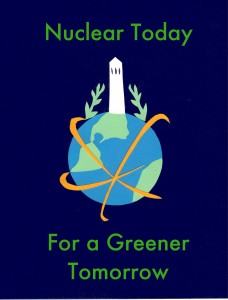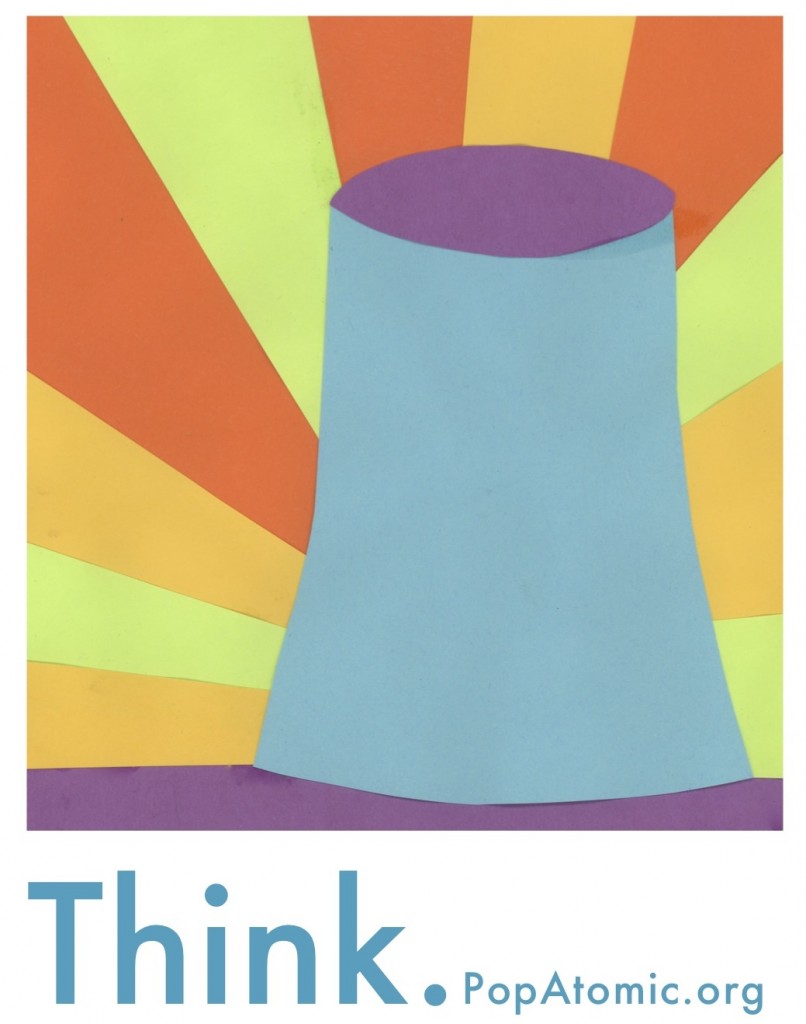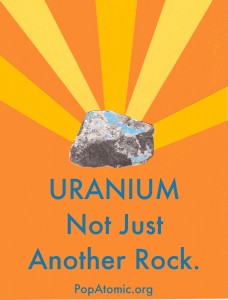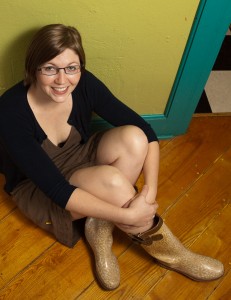The inspiration behind PopAtomic Studios: Solutions
 My generation has been labeled Generation X, or maybe Y, I'm not sure. I don't even know what those labels mean. I think of us as individuals coming of age in the Information Age. We have been exposed to more information than any generation before and have been made all too aware of the problems facing our planet from a very early age.
My generation has been labeled Generation X, or maybe Y, I'm not sure. I don't even know what those labels mean. I think of us as individuals coming of age in the Information Age. We have been exposed to more information than any generation before and have been made all too aware of the problems facing our planet from a very early age.
Much of this information is related to problems we stand to inherit. For instance, in my elementary school, we did a play about the dangers of greenhouse gases and acid rain. In middle school, we learned (with photos) about the suffering of persons in developing nations from avoidable and curable illnesses like HIV and malaria. My high school was continually placed on lockdown from threats of bombs and shootings, and I watched the Twin Towers fall in real time from a television in my senior classroom. And, as my college biology professor taught us about ocean acidification, he calmly stated, "It's completely up you guys to figure out how to resolve all of this," referring to my generation and the multitude of complex problems that we are facing.
 My generation doesn't have the luxury of making mistakes under the precedence of not understanding the impact of our actions. Generations past have not been able to get a handle of the true impact of their actions and consumption, but could the best possible outcome of the Information Age be a generation of people who can actually visualize their impact and rein it in? Could all of this information lead to solutions?
My generation doesn't have the luxury of making mistakes under the precedence of not understanding the impact of our actions. Generations past have not been able to get a handle of the true impact of their actions and consumption, but could the best possible outcome of the Information Age be a generation of people who can actually visualize their impact and rein it in? Could all of this information lead to solutions?
I think that energy is the most important issue for my generation. Energy is the foundation of modern society. The survival of our species (not to mention our quality of life) depends on the availability of abundant, diverse, and affordable energy sources. Fortunately, we have nuclear energy.
Nuclear energy stands to improve many aspects of human life:
- Environmental. We can end the constant stream of carbon and pollutants into our air and atmosphere, by ending the over consumption of fossil fuels. This would lead to an overall reduction of negative environmental impact.
- Economic. Creation of new power plants would create millions of new jobs, reviving the world economy. These jobs range from construction positions to administrative and scientific positions, employing a range of people.
- Political. Energy independence for all nations would help end wars over limited energy resources, saving lives and infrastructure. Reduction in international tensions could be achieved through increased use of nuclear energy.
- Humanitarian. Nuclear power plants contribute to increased availability to clean water, health care, and education to those living in developing nations. Access to electricity means a better quality of life.
- Medical. Continued advancement of nuclear medicine for diagnostics and treatment of countless diseases could save millions of lives. Fission reactions are the source of medical isotopes, and are a key component of modern medicine.
 Nuclear is still a relatively new technology. Speculation about its potential impact has ranged greatly, and really depends completely on the decisions of human beings. My hope is that my generation, with all of its technology and information can use nuclear energy in the most beneficial ways, with consideration to all people. We understand more than any generation before in terms of the true impact of our decision-making because we are constantly trying to deal with the messes left behind. Based on my first-hand knowledge of long-term, interconnected impact, I have come to the conclusion that nuclear energy is the one solution to many problems. Sharing these solutions with my generation is the inspiration for PopAtomic Studios.
Nuclear is still a relatively new technology. Speculation about its potential impact has ranged greatly, and really depends completely on the decisions of human beings. My hope is that my generation, with all of its technology and information can use nuclear energy in the most beneficial ways, with consideration to all people. We understand more than any generation before in terms of the true impact of our decision-making because we are constantly trying to deal with the messes left behind. Based on my first-hand knowledge of long-term, interconnected impact, I have come to the conclusion that nuclear energy is the one solution to many problems. Sharing these solutions with my generation is the inspiration for PopAtomic Studios.
All artwork was created by PopAtomic Studios.
 Suzanne Hobbs is creative director and contributing artist at PopAtomic Studios. She was born in Tokyo, Japan, and raised in Atlanta, Ga., by her nuclear engineer father and social worker mother, along with an older brother who is now an accomplished chemist. Her interest in art, science, and humanitarian issues started very young, fueled by frequent family travel and a sharp focus on education and community involvement. She attended Appalachian State University to study Fine Arts and since graduating has worked with several public arts organizations, always with the goal of using art to create positive change.
Suzanne Hobbs is creative director and contributing artist at PopAtomic Studios. She was born in Tokyo, Japan, and raised in Atlanta, Ga., by her nuclear engineer father and social worker mother, along with an older brother who is now an accomplished chemist. Her interest in art, science, and humanitarian issues started very young, fueled by frequent family travel and a sharp focus on education and community involvement. She attended Appalachian State University to study Fine Arts and since graduating has worked with several public arts organizations, always with the goal of using art to create positive change.

